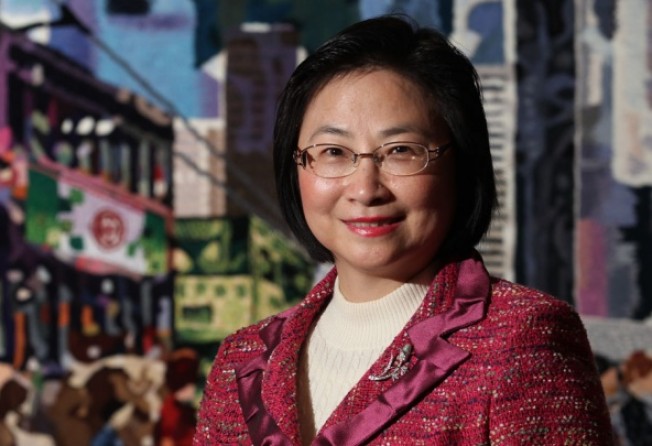
Hang Seng Bank's Margaret Leung against quota for female directors

Hong Kong Exchanges and Clearing's newly appointed female director is opposed to the idea that the city should follow the example set by some European countries to introduce a quota system as a fast track to put more women on company boards.

"Hong Kong is not yet ready for a quota system. If we introduce such a system, it would only force the companies to bring in any female relatives or friends on board to meet the quota while these female directors may not really understand the business," said Margaret Leung Ko May-yee, a former chief executive of Hang Seng Bank who was appointed last month by the government as a director of the HKEx.
Of the 13 directors of the exchange operator, including chief executive Charles Li Xiaojia, six are government-appointed and the rest are elected by shareholders.
"It would be better to encourage companies to voluntarily appoint more women to their boards instead of making it mandatory. Only if they voluntarily appoint a woman they believe to be capable of doing the job would they then listen to her advice."
Leung's appointment was seen by brokers as support from the government for the idea of having a more balanced composition of board members of listed companies. Before her appointment, the HKEx board was an "all boys" club, being among the 40 per cent of Hong Kong listed companies that had no women on their boards.
In the 13 years of its listing history, the HKEx has had only two previous female directors - Laura Cha Shih May-lung and Christine Loh Kung-wai.
"When I first joined Hang Seng Bank as its chief executive in 2009, there was only one female director on the bank's board," Leung said. "When I left last year, there were five.
"Women can bring different perspectives and are often more focused on details. It would be a good combination to have a board with people from different genders and backgrounds."
Across the board, in both public and private companies, only 10 per cent of the city's directors are women, well below the 17 to 40 per cent range elsewhere in major markets.
Leung said Hong Kong should first establish a culture for companies to voluntarily appoint more women on their boards before considering if it should introduce a quota system. If there were a quota system in place, she said, some critics might argue female directors got their posts because of their gender rather than their ability.
The HKEx will introduce a new rule in September that companies need to have policies in place to ensure their boards have a diverse composition or they would need to explain why this is not the case.